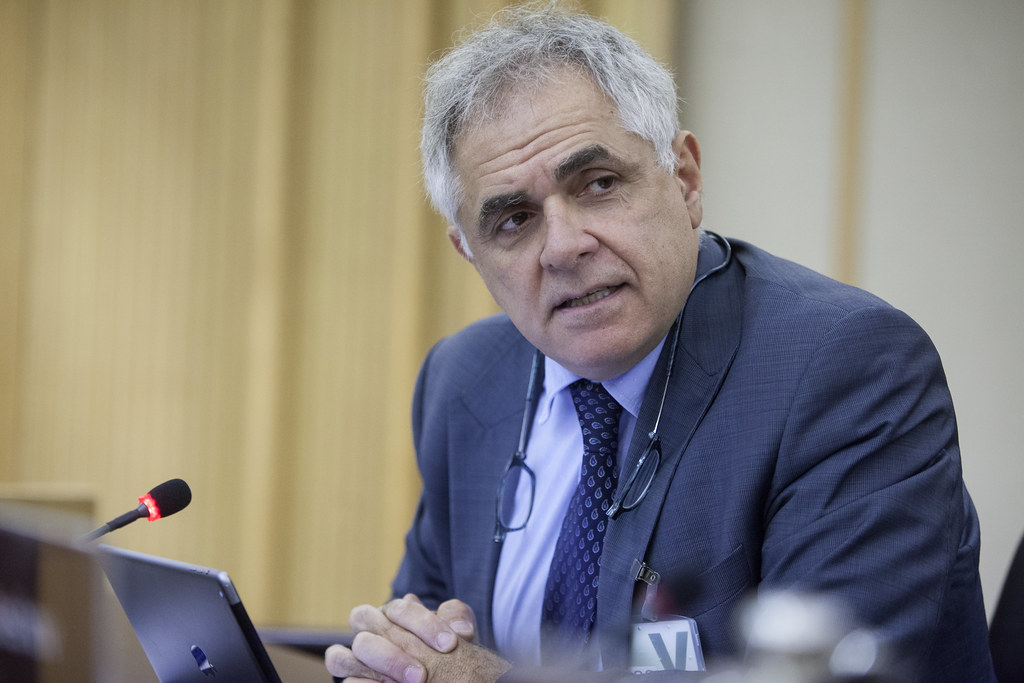
Bridging Vision and Action: Africa’s Climate Future Through Piano Mattei, Global Gateway, and AfCEN.

By Roberto Ridolfi – Senior Advisor, Africa Climate and Energy Nexus (AfCEN)
Personal Perspective & Strategic Vision
Over the last four decades, I’ve had the privilege of working at the nexus of policymaking, development cooperation, and infrastructure investment—both within the European Union and across Africa. From the corridors of Brussels to rural projects in Eastern and Southern Africa, I’ve seen firsthand that when Africa’s climate and development priorities are taken seriously, they yield global benefits – economic, environmental, and human.
Today, I believe we’re at a pivotal moment. If we do not invest boldly in Africa’s green transition—its agriculture, energy, and digital infrastructure—we will pay the price in other ways. Migration, for instance, is not just a political or humanitarian concern in Europe. It is directly tied to the lack of opportunity and resilience in many African regions facing climate shocks and degraded livelihoods. Europe has a moral imperative, but also a strategic interestto invest in sustainable, African-led growth.
That’s why initiatives like Piano Mattei and the EU’s Global Gateway matter more than ever. And why platforms like Africa Climate and Energy Nexus (AfCEN) are significant as they ensure these frameworks are grounded in local ownership, African priorities, and climate-smart execution.
Piano Mattei Framework – A New Model for African Partnership
The Piano Mattei per l’Africa, championed by the Italian government and enshrined in law in early 2024, is a strategic initiative rooted in the Italian Prime Minister’s office. With over $5 billion committed, it marks a new chapter in Italy’s partnership with Africa—not as aid, but as mutual investment based on trust and shared priorities.
The framework currently spans 14 African countries, including Tanzania, DRC, Angola, and Zambia—each chosen based on their own development plans and strategic interests, not externally imposed targets. In Tanzania, for instance, there is also a focus is on climate-resilient agriculture, tackling the widespread threat of aflatoxin in maize and groundnuts. Solutions now being rolled out in East Africa are game-changers for public health and export competitiveness.
But Piano Mattei is about more than agriculture. Its pillars include but are not limited to:
What makes Piano Mattei different is its flexibility, speed, and political anchoring. It listens to African governments. And it’s ready to evolve with the continent’s needs.
Global Gateway – Europe’s Financial Firepower for Africa’s Transition
In parallel, the European Union’s Global Gateway, born on the External Investment Plan of 2017 with the European Fund for Sustainable Investment (EFSD+) of the EU which I drafted and got approved in 2017 is today the continent’s most ambitious global investment strategy yet. With €300 billion mobilized globally—half of which is earmarked for Africa—it is the EU’s answer to building resilient infrastructure, digital connectivity, and green growth across partner countries.
Where Piano Mattei brings political commitment and agility, Global Gateway offers financial scale and blended financing tools. Through mechanisms like EFSD+, guarantees, and public-private partnerships, Global Gateway de-risks large-scale infrastructure and energy projects.
One example is the EU’s support for mineral value chains and export corridors, which dovetail with Italy’s Piano Mattei ambitions in the Lobito Corridor and elsewhere.
This example add to ELECTRIFI and AGRIFI which I launched in 2015-2016 at the EU which are substantial innovation on financing mezzanine risk capital for minigrids and agroprocessing at small scale.
The Role of AfCEN – Anchoring Global Commitments in African Realities
The Africa Climate and Energy Nexus (AfCEN) was founded to do what neither government nor global institution can do alone: connect ambition with grassroots action. AfCEN is an Africa-led platform that convenes governments, investors, entrepreneurs, and civil society to co-create and scale African climate solutions.
In Tanzania last week, AfCEN lead a mission to:
AfCEN’s unique strength lies in translating policy into projects. We serve as a trusted technical partner, ensuring that initiatives like Piano Mattei and Global Gateway:
Unlocking Africa’s Future Together
“I am deeply enthusiastic about this endeavor—and I truly believe we will succeed.”
The convergence of Africa’s demographic strength, natural resources, and innovation ecosystem presents an unparalleled opportunity—not just for the continent, but for the world. Piano Mattei and Global Gateway are two critical vehicles driving that transformation. And with platforms like AfCEN ensuring these frameworks remain rooted in Africa’s priorities, we have every reason to be optimistic.
The time for talk is over. The time for action—bold, aligned, and African-led—is now.
© Africa Climate and Energy Nexus. All Rights Reserved
2025